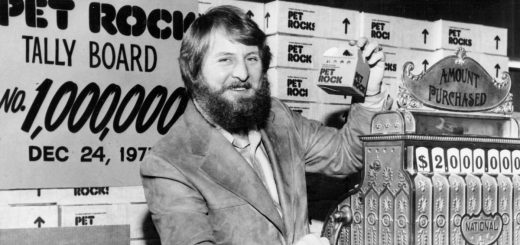An interview with Google CEO Eric Schmidt

Charlie Rose, an American television interviewer and journalist who has hosted an interview show named Charlie Rose since 1991, had an hour-long conversation with CEO Eric Schmidt last Thursday.
Highlighted parts of the conversation are below. Some more considerable sections are written in bold letters and colored with red:
Charlie Rose:
Let’s just go back and do a quick history of Google. 1995, Sergey and Larry started, and they build this search engine working at Stanford. How did they get you involved in 2001?
Eric Schmidt:
Well, Larry and Sergey invented the algorithms, the lessons, if you will, the way our search works today when they were very young and in graduate school. And they founded Google and eventually needed some additional management help, and there was a search that ultimately I got connected to them through one of our board members, John Doar. From my perspective, most of what you see at Google today was invented at Stanford by graduate students. And a lot of the culture, the way we operate is really derived from that culture.
Charlie Rose:
Your background, though, was as a technologist. You’ve been head of technology for Sun Microsystems, you’ve been a CEO.
Eric Schmidt:
That’s correct and I see myself mostly as a technologist who happens to run a business.
Charlie Rose:
What was the original mission for Google?
Eric Schmidt:
All the world’s information universally accessible and useful.
Charlie Rose:
And how are we doing on that?
Eric Schmidt:
Well, we have just started. And I will tell you that when you’re 23 years old, and you state that’s your mission, you’ve got a lot of years ahead of you. And Larry and Sergey still have a long way to go on that.
Charlie Rose:
This is what I’ve always wanted to wonder. I’m told this is true that in the beginning, what you were going to do was sell to people the search technology. We’ll sell this to you, and then you can do search.
Eric Schmidt:
The first model was just this is an amazing new invention, this ability to search information. And at the time, the web was not so complicated. It wasn’t as obvious that search would be needed because it wasn’t that big. You could sort of look and find things, and you knew people. So Larry and Sergey went around to all of the then powerful internet companies. And every one of them turned them down.
Charlie Rose:
Saying what?
Eric Schmidt:
We have a better solution. We don’t know how to work with you. You’re too young, that sort of thing.
Charlie Rose:
Well, who decided — what smart person decided that rather than selling the technology we’ll just sell advertising?
Eric Schmidt:
Well, the initial attempts didn’t work because they heard no, no and no. Meanwhile the money is kind of running out and they’re getting kind of nervous. So they came up with a simple advertising model which one of the engineers invented that worked pretty well. And the small team at the time managed to get a couple of deals. When I showed up, that product was fixed in price and the — Google had invented a dynamic system that ultimately became our product called AdWords. And I remember walking to the very young program manager whose name is Salar, who looked to me to be about 21 years old. I had just joined, and I said, promise me our revenues are not going to go down by a factor of ten when your brilliant new product comes out. He said, it’s going to go up by a factor of ten. And I said, no, you know. And indeed he was right.
Charlie Rose:
And advertising is now, what, 90 percent of the revenue?
Eric Schmidt:
98 percent. We are an advertising company. And you can think of Google as two parts of the company. You can think of it as a user phenomenon and our prime area focus by the way is on end users and solving their needs. And you can also think of it as a business in which case it’s an advertising business.
Charlie Rose:
Today Google does many things. I mean searches is its primary thing, but you — you made e-mail, Google news.
Eric Schmidt:
We started off with search. And the early founding team, Larry and Sergey and the initial team invented the advertising model which has done so we will for us. On April 1 of 2004, we introduced our first application which was called Gmail. And at the time, people thought it was a joke. We sort of played with that, but it was part of our character. And today we say our strategy is search, ads and apps.
Charlie Rose:
Applications. You have this thing at Google where you can take a day off of each week or 20 percent of your time, say, out of 100 percent, five days, one day, and you can work on anything you want to. How much of that has led to interesting, productive profitable applications?
Eric Schmidt:
We think the 20 percent time is really the only way we’ve been able to maintain our innovation as we have gotten larger. What normally happens with technology companies is the initial founding team gets older, you bring in traditional management, and although it becomes a better managed company, much of the inspiration and the flair and the joy did get lost in the process. By establishing the principal that engineers could spend 20 percent of their time working on whatever they found interesting, we built a culture where there’s this constant flow of innovation.
Charlie Rose:
Does Google want to buy Twitter?
Eric Schmidt:
We’re unlikely to buy anything in the short term partly because I think prices are still high. Google is generating a lot of cash. And so we keep that cash in extremely secure banks.
Charlie Rose:
YouTube has been fueled by user generated. People did it with their cameras. How much of a phenomenon is that going to be in the future of the internet?
Eric Schmidt:
We think it will be one of the most defining aspects of the internet. Because if you think about it, everybody has phones and every phone has a still camera, and every one of those phones is going to have a movie camera pretty soon. And indeed if you think about it, a lot of the news that you see you’ll see some phone camera video of low quality. Well, five years from now, those will be very high quality videos as the technology gets better.
Charlie Rose:
Mobile devices will play what role in the future sort of evolution have technology?
Eric Schmidt:
They’re probably the most important of all. Today, everyone here in the audience has a mobile phone. It’s the last thing you would leave anywhere, head phone, has a GPS, knows where it is. The powerful mobile phones have powerful browsers. They have cameras, as we’ve discussed before. You can do a lot with them. Fast forward a few years from now with the content and the capability of that with a new generation of applications. We expect eventually that the important of uses of the Internet will be on mobile phones. Mobile phone usage is growing faster than personal computers. There are many more of them, on the order of 4 billion in the world. In our lifetime, the majority of people, at least 5 billion, maybe 5 1/2 billion will have mobile phones.
Charlie Rose:
Okay. Now speak to GPS in terms of what is going on, because — and what you guys at Google are thinking about because there is this idea that you want us to know where everybody is all the time.
Eric Schmidt:
The next generation, I’m not sure about my generation, but the next generation is infinitely more social online.bBut the fact of the matter it’s now possible, for example, we have a product called Google latitude which runs on any of your mobile routers using GPS that will — which will essentially tell everyone you wish where you are. And you can decide the level of accuracy and also how far do you publish it. So you can say it only to three people, and you can tell them accurately. You can also say only to these three people, and you can tell them, oh, I’m in the state of New Jersey, or whatever.
Charlie Rose:
Let’s look five years from now. I mean all the things we have been talking about today are mostly here today. Where is it all going? What’s exciting about where we will be?
Eric Schmidt:
Let’s do a little math.
Charlie Rose:
Okay.
Eric Schmidt:
Moore’s law says that you can double the density or number of things that are on a computer chip every 18 months. So a rough rule means that a computer either gets twice as fast or half the price over an 18 month period. Usually the vendors prefer that it gets twice as fast and not fall half the price because of the revenue implication of that. But that’s why these phones that you have more computer power than the entire NASA space program used in launching us to the moon, all of the computers that they had. It’s a phenomenal achievement. It’s not slowing down. That means in that five years, it will be 10 times cheaper or faster. In 10 years, by the way, that’s 100 times cheaper or faster. And in 15 years, it’s a thousand times cheaper and faster. So unless something changes in 15 years, I have a grandson, he’ll be 18 in 15 years. He will have all of the world’s information, every video, every movie and so forth on a single hard drive. If he started watching it, he cannot finish watching it in 85 years. He’ll always be frustrated.
Charlie Rose:
Are people in technology different?
Eric Schmidt:
Yes. Technologists as a group tend to be more analytical, more data driven, more personally liberal, more willing to tolerate the differences between people.
Charlie Rose:
So here’s the question. Many people write books now in which they talk about with the economic crisis, the changing world order, a flat world, that America will not have the same place it did in the 20th century. A, you got a degree at Princeton, went out to Berkley, got a Ph.D. in computer scientists, I think, mathematics or something. That we are not necessarily going to lead the revolution that will deliver these things. Is that of concern to you or do you accept the premise?
Eric Schmidt:
If you’re a person who believes that America is the only country and America is always right, I have news for you. It’s not going to be true in the future. Because the Chinese and the Indians and the sum of the Europeans will have their own stake on what’s right and what they think the future is.




